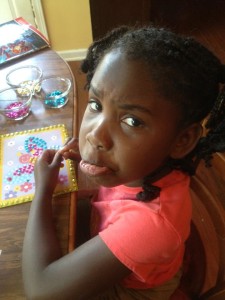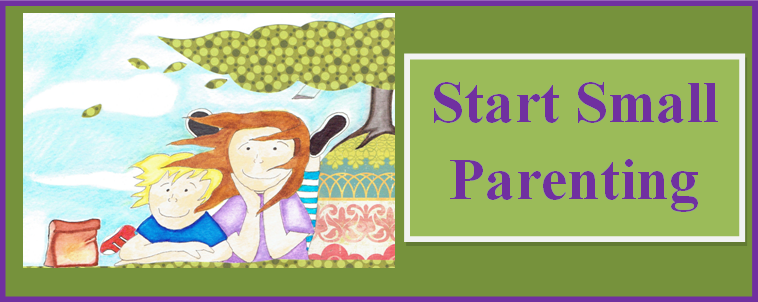
I’m excited to share this guest post by Angel Rodriguez of Wise Learners. He is an educator with over 17 years of experience in early childhood education. He currently works as a Parent Instructional Support Coordinator for the largest school system in Georgia, specializing in brain-based learning. He’s also served as a foster parent to children with severe physical, emotional, and mental disabilities. He’s a dad of four great kids. His two youngest were adopted through foster care and have Fetal Alcohol Spectrum Disorder (FASD). He’s been inspired to study how we ALL can become better learners. Enjoy!
~~~~
Failure-Proofing Your Kid (and yourself)!
I have not failed. I’ve just found 10,000 ways that won’t work.
– Thomas A. Edison
I’m a dad of four amazing kids. Each has climbed to amazing heights, yet each and every one has also stumbled and fallen. That’s life. There is nothing wrong with messing up. There is nothing wrong with coming up short. This is nothing wrong with flat out FAILURE! The hard part is that as a parent, you don’t want them to suffer through it, or do you? Actually, you want them to fall (although not ALL the time…and please no broken bones), because that is when your child will learn something invaluable…how to pick themselves back up!
Failure is a Learning Opportunity
We all want what is best for our kids, but few things can equip your child better than learning how to dust themselves off and get back on track. This is how the brain works. The analysis, countless comparisons, high level problem solving, critical thinking, creativity, the tough minded effort…it is how our brain ideally handles failure. Failure is nothing more than a learning opportunity. The problem is how we perceive failure. This is where spirits are crushed and effort dissolves into apathy.
So what can you do about it? First of all remember, no one knows your children as well as you do. Therefore, no one will ever be in a better position to help your child better than you can. That is critical, because sometimes parents sell themselves short. Never do that! You will always be your child’s first and most influential teacher, and this is a lesson that you will need to consistently deliver for many years to come. Your mission will be simple. Get your kids thinking about failure the way they should be thinking about failure.
Failure is not permanent
Failure hurts us when we perceive it in one of three ways, so guard against this at ALL costs. First off, failure hurts us when we think it’s permanent. There is nothing permanent about failure. You failed a test, study more and try again. Did you fall off your bike? Keep practicing. Did you gain some unwanted pounds? Eat right and exercise. The only way failure can become permanent is if you make it permanent. This is especially true in regards to the brain. Because of neuroplasticity (all it means is that the brain is moldable and malleable), it is impossible to prevent your brain from learning. With time and effort you WILL learn more. It’s a fact. You can’t fight it. You just learned something new right now. HA! I dare you to unlearn it (causing head trauma to yourself is not allowed…that’s cheating). Don’t let your child believe failure is permanent.
Failure is not personal
Failure again hurts us when we perceive it as personal. I had a horrible time with math as a kid. I thought “I’m no good at math, but everyone else is great at it.” I convinced myself of it and I shut down. I should not have taken this failure personally. It wasn’t like math was hiding around the corner waiting to jump out and get me (There goes Cindy…no, Tom…no, Ben….no. Aha, there’s Angel! Time to POUNCE!). Now think of all the adults that carry this attitude with them. We do not want our kids to feel as if they are going through something unconquerable unlike anything ever experienced, as if it’s only happened to them. Don’t let your kids think failure is personal.
Failure harms when it’s pervasive
Finally, do not let your young ones (or yourself) fall into the trap of letting failure become pervasive. It can be like an infection. Splinters hurt (I know…I’m a big baby when I get one)! My wife is merciless when removing splinters from my finger (I think she delights in it…I’m almost certain I’ve seen a twinkle in her eye). Yet, if we leave the splinter, an infection occurs, causing far greater damage. Many people survive all types of physical trauma only to suffer worse at the hands of an infection. Failure is insidious in this same manner. Oh, you’re having trouble with fractions? You must not be good at algebra then, and if you’re bad at algebra, then college level math is going to be impossible. If you are having this kind of trouble, then you just must not be good at math period. Oh, you’re not good at math? Maybe you weren’t meant for school. If you’re not meant for school, you should just call it quits now and drop out. Did that sound ludicrous? I’ve sadly seen it as an educator far too many times. Even more personally, that was MY story. I was the first person in my family to get a college education….I could have easily NOT been.
Model, Remind, Support
Now you know. Don’t let failure be perceived as permanent, personal, or pervasive. Model it yourselves, remind them always, and support them (not catch them) when (not if) they fall. I could quote many psychologists and experts in the field of neuroscience on this very topic, but instead, I’m going to close by citing the words of Vince Lombardi to hammer the point home.

It’s not whether you get knocked down, it’s whether you get up that counts.
– Vince Lombardi
Guest Post by Angel Rodriguez (WiseLearners.com)
Facebook: http://www.facebook.com/Wiselearners
Twitter: https://twitter.com/WiseLearners
Pinterest: http://pinterest.com/WiseLearners/


I have to admit that when I saw the title I was disappointed, and ready to get up on my soapbox. Failure-proof your child? Impossible! So glad I took the time to read the whole article. Angel, I couldn’t have said it better myself. And thanks for the three P’s – Don’t let failure be perceived as permanent, personal, or pervasive. For when we do, we truly fail by giving up, and never knowing what we are truly capable of being and accomplishing.
It’s our design. 1+1=2…you didn’t learn a darn thing. When things get hard…when we stumble…THAT is when the learning machine is in motion!
I love my dad. He past away in 1996. I learned everything about being a father from him…not from his great examples, but from his failures….failures I choose to learn from and not repeat once I became a father. I’m thankful for every trial that comes my way in life. Glad you enjoyed the article! =)
We never fail, we ways get a result. It’s just not be the one we wanted . Love this article!
EXACTLY!!! There is always a result, and you can always put it to use in some positive way! =)
Yes, that’s great, Fred. It does seem a bit egocentric to think that we know even what the “best” or “worst” result should always be!
We never fail, we always get a result. It’s just not be the one we wanted . Love this article!
“Some have the speed and the right combinations
but if you can’t take the punches
it don’t mean a thing.”
– Warren Zevon
Every child, through adult is capable, not created for failure. This is common sense. If you judge anyone for what you think they are capable of you are just trying to make them into something that you imagine would be good for them. To prove this flip it around. What if your kids told you it was OK to fail. That would make it acceptable to you to fail and an option. I.e. you accept failure!
I have news for you parents you are 100% capable. Every person on the face of the earth is equal therefore if even one is capable, none could be less when all are equal. When we stop judging ourselves as incapable, we will begin to see others including our children as capable. Be thankful for your tests. If you score high it is no different than if you score low outside the test as the test alone is the judge. When you help your child learn this outlook on life, the child will remain capable and know that only the test score counts as a judge on the test and they will not find themselves as a “grade” that only leads to “I am a failure” or I am an arrogant over proud better than everyone person” Unless success means that they are “A” students, always in the ten percental, but 90 % of parents would raise failures under those standards. I know if you are a parent you are equal to me and just as capable since we are equal and I do not have to worry about how you will raise your most precious gifts. I am glad you did not read this 40 years ago as there is time to change your standards for what human life is about and that is the person not the test. When the person is protected from damage inside you can stop drugging them and they will keep food on the teachers plates as well as yours as you will never again judge someone’s child incapable when you are trusted to be a professional. I could write you a book but if you want advise I am available to chat with you at 740-361-5651 I love you as a person and know you are capable but may be out if touch with common human instinct.
To sum up my article…your brain was design to learn from failure. We I learned how to roller skate, I remember doing a LOT of falling.
But I’m curious, what is your definition of capable. I came across this…
a. Having the ability, fitness, or quality necessary to do or achieve a specified thing.
b. Able to achieve efficiently whatever one has to do; competent.
A. requires you to have the ability. How do you develop it in the first place?
B. requires you to be efficient. How do you reach that level of efficiency?
I’m again thankful for my trials because the hard work always comes before the prize. Kids (and many adults) often convince themselves to halt when they should press on. Heck, Walt Disney was FIRED from his job at a newspaper for lacking…IMAGINATION! Glad he didn’t swallow that failure and give up eh? Where would so many vacation this summer?
Yesterday I told my son he had stick-to-it-iveness. He had never heard the term but he certainly exhibits the quality. When he was introduced to a unicycle at a young age, he persevered, with our guidance, and is now an accomplished mountain unicyclist at 11. Not that unicycling is for everyone. But your article got me thinking about what it took for him to stick with it.
– actually seeing the impact of “learn from your mistakes”
– patience
– a lack of “immediate gratification” stimulation. In our house that includes having limited access to TV and other media. (It’s hard for anything real-life and difficult, like self-discipline and motivation, to compare with an abundance of flashy media.)
– encouragement from us, certainly, but not an over-use of praise
– failure. lots of it.
– small doses of efficiency peppered in with all that failure until the balance shifts. The more experiences my son has like this, the more he trusts failure.
Thanks, Angel, for a thought-provoking post.
What you said, Steve, about testing really strikes a chord. It’s difficult for me to see the stress that testing can induce in many children and the judgement that they are “good” or “bad” depending upon their score.
This is a wonderful article and message to parents! We learn through making mistakes that teach us a lesson. As adults we often need to be reminded of that! Thank you for a wonderful read and advice!
Maria
http://www.musicteachingandparenting.com
Parents need to take on that Rocky mentality…just keep pushing forward!